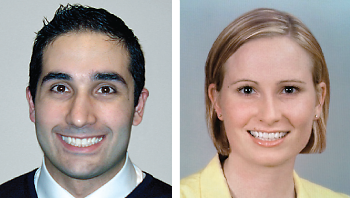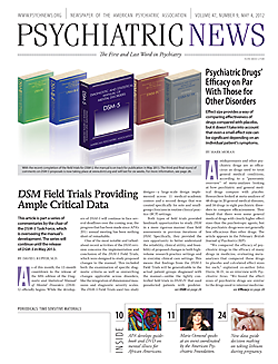Recent reports of the increasing prevalence of autism spectrum disorders (ASDs) has prompted much scientific and media attention. According to the Centers for Disease Control and Prevention, as many as 1 in 88 children has a diagnosable ASD.
The precise nature of this increase is unknown. Better diagnosis, greater awareness, and the recognition of an autism “spectrum” as opposed to discrete diagnostic conditions may all be contributory factors. The profound morbidity associated with ASD makes it a prominent public-health concern. The impairments of ASD develop in early childhood, have limited proven interventions, and usually follow a lifelong course.
As psychiatry residents, we are more likely than ever to provide care to patients with ASD. As such, it is worthwhile to recognize the many challenges these individuals and their caregivers face. Included in these challenges are prominent psychiatric comorbidities such as anxiety disorders, disorders of attention, and intellectual disabilities.
Helping to diagnose and treat these individuals may be clinically challenging not only for residents, but also for skilled child and adult psychiatrists. To complicate matters, there are considerable health care barriers these individuals may face when attempting to access psychiatric and other medical resources. These difficulties may include long waits for an appointment in a noisy crowded waiting room and the often arduous task of interacting with insurance companies.
It is important that we avoid considering the treatment of our patients in isolation from their social environments. These considerations are particularly salient for patients with ASD, as they often have a wide range of individuals who are involved in their care. Educationalists, psychologists, dentists, and physicians are often providing services to these individuals.
A key skill that we should develop during residency is to be able to undertake collaborative work with these professionals. Both understanding the roles of other care providers and being able to direct individuals to appropriate resources are crucial factors in the treatment of our patients. We have found it useful, for example, to identify ASD-friendly dentists and spend time interacting with educationalists in the state school system.
In Atlanta, we have been fortunate to have several highly specialized autism centers including the Emory Autism Center and the Marcus Autism Center. The impact of such centers cannot be underestimated—the Marcus Autism Center is now the largest clinical autism treatment site in the United States. These centers, in combination with other universities, interest groups, and people affected by ASD have formed the Atlanta Autism Consortium.
The consortium has monthly themed meetings, special-interest subgroups, and an active mailing list. Such a large and diverse consortium encompassing the entire Atlanta metropolitan area has made it a unique resource.
As residents we have both found that our interactions with this diverse group of advocates, researchers, and caregivers have significantly widened our perspectives on ASD. We have had the opportunity to present our ideas and discuss our viewpoints. New research trials and even the availability of local autism-friendly physicians are among the wide breath of topics on which information is disseminated at these meetings.
Inevitably, issues arising from both insurance reform and the complexities of state legislation are discussed. Understanding these deeper issues allows us not only to become better clinicians but also to be better-informed advocates. The skills we gain in the development of treatment collaborations are highly transferable and help to further the field of mental health in general.
Opportunities to work with these individuals in such a vast setting are not everywhere. We have been fortunate to benefit from the growing dynamic interaction between Emory’s departments of psychology, pediatrics, and psychiatry. Their integration is both progressive and insightful. The ultimate goal in this setting is to provide better care to individuals with ASD. However, the establishment of such an integrated perspective can be applied across any disorder in psychiatry. It is vital that as future leaders in mental health, we ensure that this type of collaboration continues.
Residency is often a time filled with many commitments. However, it is also a wonderful opportunity to perfect our skills and widen our perspectives. We encourage residents to explore their own local resources, understand health care policy and advocacy related to ASD, and gain experience in treating this growing and often disenfranchised group of individuals.

Arshya Vahabzadeh, M.D., and Justine Wittenauer, M.D., are second-year residents at Emory University. Vahabzadeh is also a 2012-2014 APA Leadership Fellow.

